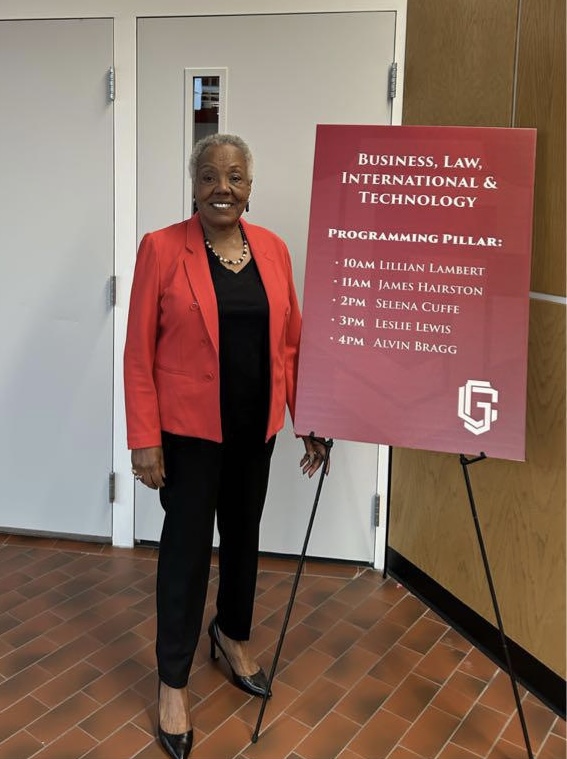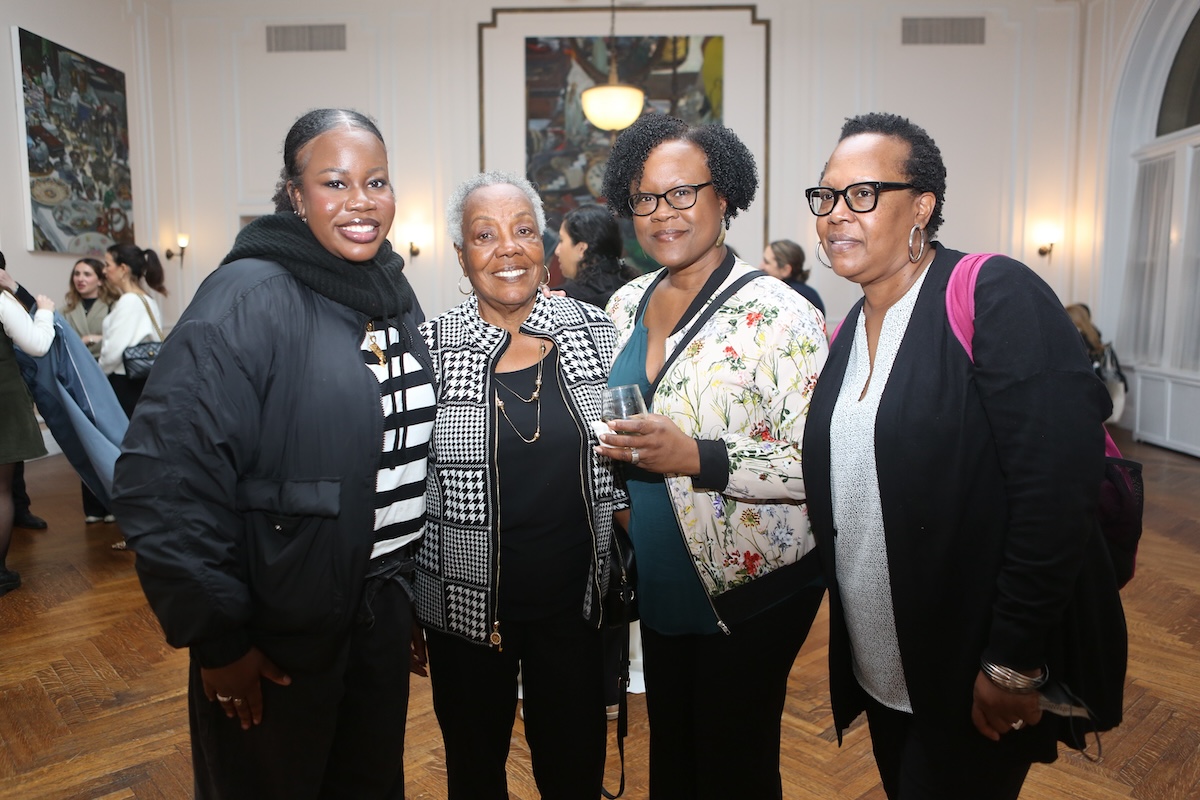Lillian Lincoln Lambert graduated from Harvard Business School (HBS) in 1969, just six years after the school began admitting women. One of six Black students and 18 women in a class of 800, Lillian made history as the first Black woman to earn a Harvard MBA.
Born in Virginia in 1940, Lillian grew up on a farm without electricity until the age of eight. Decades later, she built and sold Centennial One, a building maintenance company with over $20 million in revenue.
We spoke with Lillian about her journey from Harvard to building a multi-million dollar business. Here are four lessons from her journey.
1. Use setbacks as fuel for growth
Once an undergraduate at Howard University in Washington DC, Lillian (pictured) had no plans to attend graduate school. Having started her degree later than many of her peers, she was focused on finishing her studies and securing a job.

“I wanted to finish my bachelor’s and make some money because I was going to be 26 when I graduated, while most people are graduating at around 21 or 22 years old,” says Lillian.
That changed when marketing professor H. Naylor Fitzhugh—one of the first Black graduates of HBS—encouraged her to pursue an MBA at Harvard Business School.
“He kept talking to me about graduate school, and I had great respect for him. Anything that he talked about, I thought must be worth listening to,” she says.
She was hesitant at first but submitted an application. When she was rejected due to a low GMAT score, she retook the test and applied again—this time, determined to secure her place.
“Now I was interested in going because I didn’t want them to tell me that I wasn’t capable. Professor Fitzhugh said I was Harvard material, and I believed it. So, I decided to call the school and find out why they rejected my application.”
With an improved GMAT score, Lillian was admitted—becoming the first Black woman to graduate with a Harvard MBA, though she only learned that fact later.
2. Mentorship can transform your career
Mentorship and a meaningful network often influences career decisions that might not have been made otherwise.
For Lillian, that influence began at home. As the youngest of seven children, she grew up with the example of her mother, who had earned a college degree in 1922—an uncommon achievement for a Black woman at the time.
“My mother always said to me, ‘You can do anything you want if you set your mind to it.’”
Later, Professor Fitzhugh’s guidance shaped one of the most defining decisions in her career.
“I certainly didn’t know that no Black women had ever gone to the school. Professor Fitzhugh probably knew that, but he didn’t share that information with me. If I had known, I’m not sure I would have gone.”
Mentorship was a recurring theme in Lillian’s career, and she made it a priority to support others in the same way.
In 1968, she co-founded the African American Student Union at Harvard, helping to increase Black student enrollment from six to 27 in just one year. More than 50 years later, the organization continues to provide resources and support for students.
In founding Centennial One in 1976, Lillian entered a field where women were well-represented in the workforce but rarely reached leadership. Recognizing this imbalance, she invested in training and professional development to help more women move into management.
“When I started my business, I didn’t know any other women starting businesses, particularly Black women. But in my industry, 80 to 90% of the workers were women. I wanted to give women an opportunity to feel good about being in my business and see me as a role model, something they could aspire to,” Lillian explains.
3. Resilience comes from how you approach challenges
Even the best-prepared businesses face setbacks that test their resilience. Five years after launching Centennial One, Lillian was abruptly removed from the government contracting program that had helped her get the business off the ground.
“In about six months, I stood to lose $5 million in business—more than half of my annual revenue.”
For the next two to three years, the business operated at a loss, forcing Lillian to make critical decisions under pressure to keep it running.
“I lost money for about two or three years, but I was able to turn the business around because I had hired someone to focus on developing the commercial market. That’s the only thing that really saved me.”
Lillian had faced obstacles long before Centennial One’s survival was at stake. Establishing a business as a Black woman in 1976 meant navigating structural barriers that extended beyond financial risk.
“In that era of the emerging civil rights and women’s movement, no companies knew what to do with me,” Lillian explains in her memoir ‘The Road to Someplace Better: From the Segregated South to Harvard Business School and Beyond’.
After earning her MBA, Lillian worked across multiple industries—including job training, finance, and academia—before a former colleague recommended her for an executive role in building maintenance. It was there that she gained the experience and industry knowledge to launch Centennial One.
Yet even getting the business off the ground wasn’t straightforward. She applied for the Small Business Administration’s 8(a) program—designed to help minority-owned businesses secure government contracts—but was initially rejected.
“I was a double minority—Black and female, but I still had trouble getting accepted onto the program.”
Undeterred, she secured a contract independently, reapplied, and was accepted.
“I never worried too much about challenges that could possibly come ahead. I just dealt with them when they appeared and decided what to do.”

4. Expect the unexpected
Lillian knew that government contracts would not sustain her business forever, but the transition away from them came sooner than expected.
A year before she was pulled out of the program, Lillian had hired someone to develop commercial clients. For a year, the decision showed no returns, but when government contracts stopped coming in, it kept the company afloat.
The principle of long-term financial preparation was something she had learned early on from professor Fitzhugh.
“He told me that as a business owner, it’s important to reinvest your money into the business. When you have a profitable year, put the money back in.”
Prioritizing financial stability over short-term rewards helped Lillian to withstand financial setbacks.
“I remember so many colleagues that, once they got ‘successful,’ started spending on a bigger home, bigger cars, taking trips. And I did not do that, and many of them didn’t survive when the critical times came in their business.”
By the time she sold Centennial One in 2001, it had grown to more than 1,200 employees and $20 million in revenue.
Decades after unknowingly making history as the first Black woman to earn a Harvard MBA, Lillian returned to her alma mater in 2003 to receive the Alumni Achievement Award, in recognition of a career spent breaking barriers.
Having built a multi-million dollar company at a time when few women held leadership roles, she now shares the lessons of resilience and business success through her work as a business coach and in her memoir.



